One morning in January 2015, Hafsat Bukar woke up to a violent attack by Boko Haram insurgents in Baga, a town in the northeastern Nigerian state of Borno. When her family saw people running helter-skelter, they joined the crowd as the sounds of gunshots displaced dozens of villagers.
Hafsat, who was only nine years old at the time, found herself separated from her mother, surviving in the bush with a stranger who fed her a small portion of stockfish while they desperately searched for her family.
“I was with a stranger who helped me through for three days until we saw my mother in a town called Bundur in Monguno,” she said, each word from her laden with the weight of memories too heavy for a young girl. Just when her family thought they had lost her forever, they were reunited.
Internally displaced children like Hafsat often lack access to education in camps. According to the United Nations Children’s Fund (UNICEF), 2.8 million children require education-in-emergency support in the three conflict-affected states of Borno, Yobe, and Adamawa.
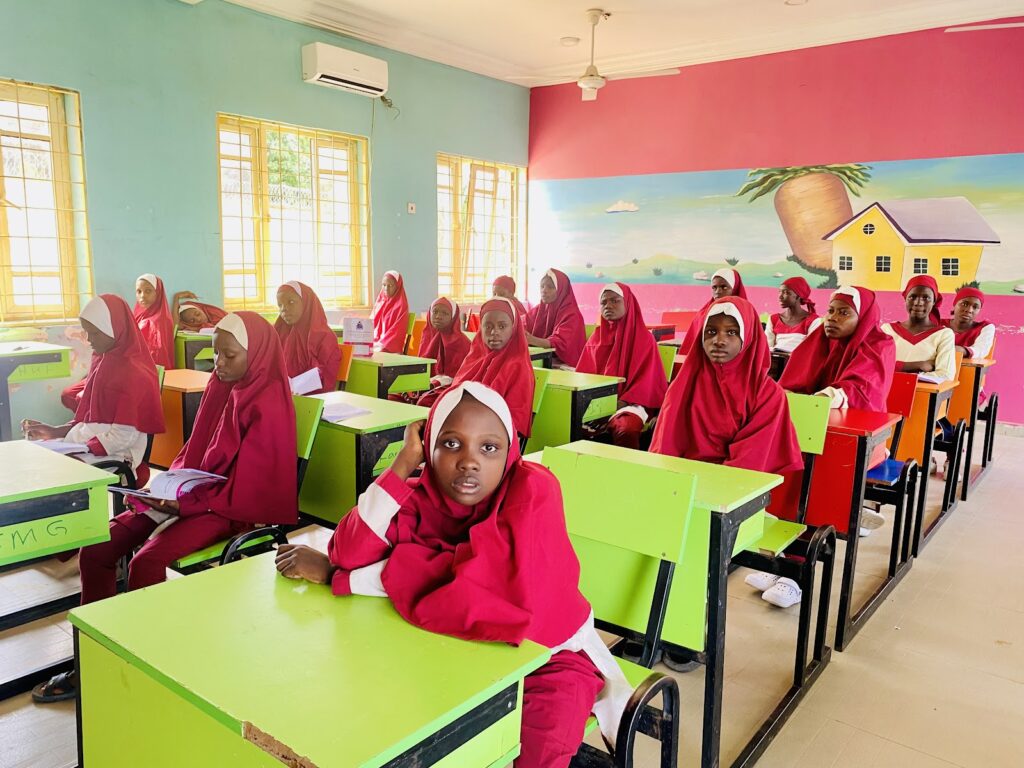
Girls Child Concerns (GCC) Academy is filling this gap by providing quality education and practical skills for the growth of displaced children. Hafsat is one of over 300 girls schooling at the academy. Though a primary two pupil before her displacement from Monguno, she is currently in senior secondary school 1 (SSS 1) at GCC.
Aside from academic studies in the school, Hafsat attends phone repairing classes, and she has, in the last few months, fixed four devices on her own. “I never thought girls could fix phones, too. When I saw people repairing phones, I wondered how. But now I can fix phones, too. I can change smartphone screens, fix charging problems and also fix a lot of IC (Integrated Circuits) related problems on a mobile phone,” she said.
With each successful repair, Hafsat’s self-confidence soars to new heights, boldly asserting her ability to outshine any professional phone repairer in the future. “I will learn all the crafts at my school before I graduate so that I can make a big difference, thereby changing the narrative in the north,” she said with a smile on her face.
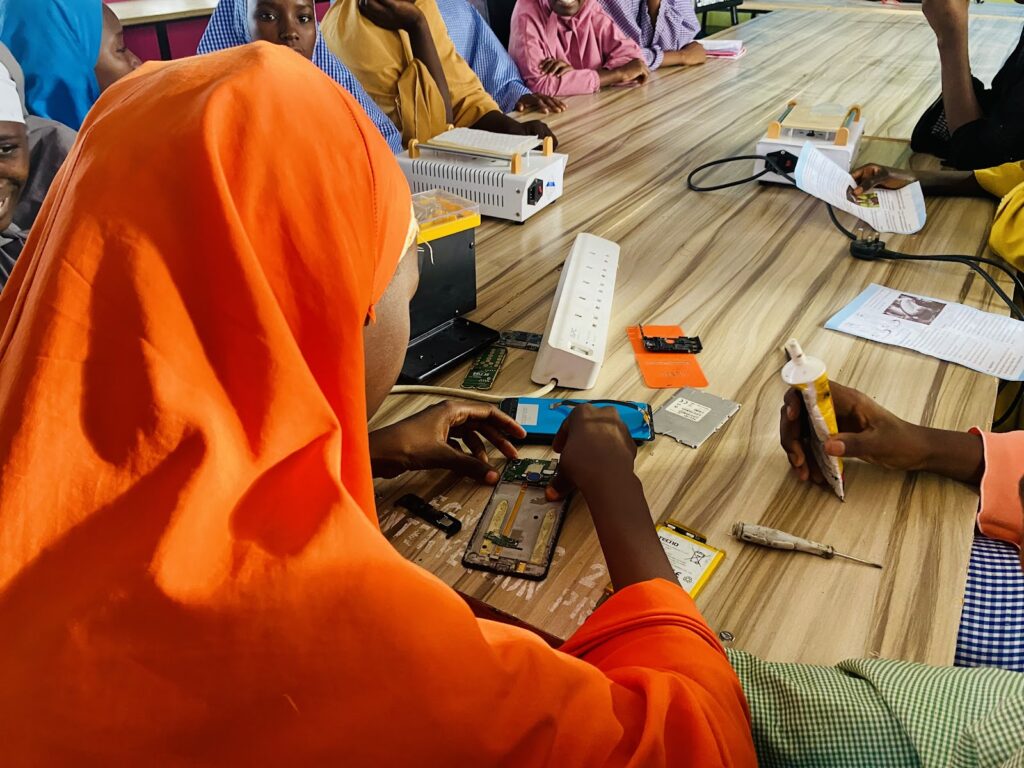
GCC Academy
GCC was established in 2003 to address the wide gender gap in girls’ enrollment in schools in Nigeria’s northern region. With offices in Abuja, Kaduna, and Maiduguri, numerous interventions have provided access to education for young girls and awareness of their reproductive lives, rights, and responsibilities.
In 2014, the school partnered with the Borno State Government to provide support for displaced girls. The principal of GCC, Mohammad Abdullahi, told HumAngle that they selected 300 girls from six IDP camps – NYSC, Bakassi I, Bakasi II, Mogolis, Stadium, and Teacher Village camp.
“We commenced teaching them within the camps before transporting them to the GCC building for classes and returning them after school hours. When the government announced the closing down of IDP camps, we were scared about their parents withdrawing them, thus disrupting their education. So, we decided to enrol them as boarding students,” he said.
“During the initial two years, the children remained on campus without any holiday, but their guardians were permitted to visit. After this intensive period, we gradually introduced holidays, aligning with conventional school schedules.”
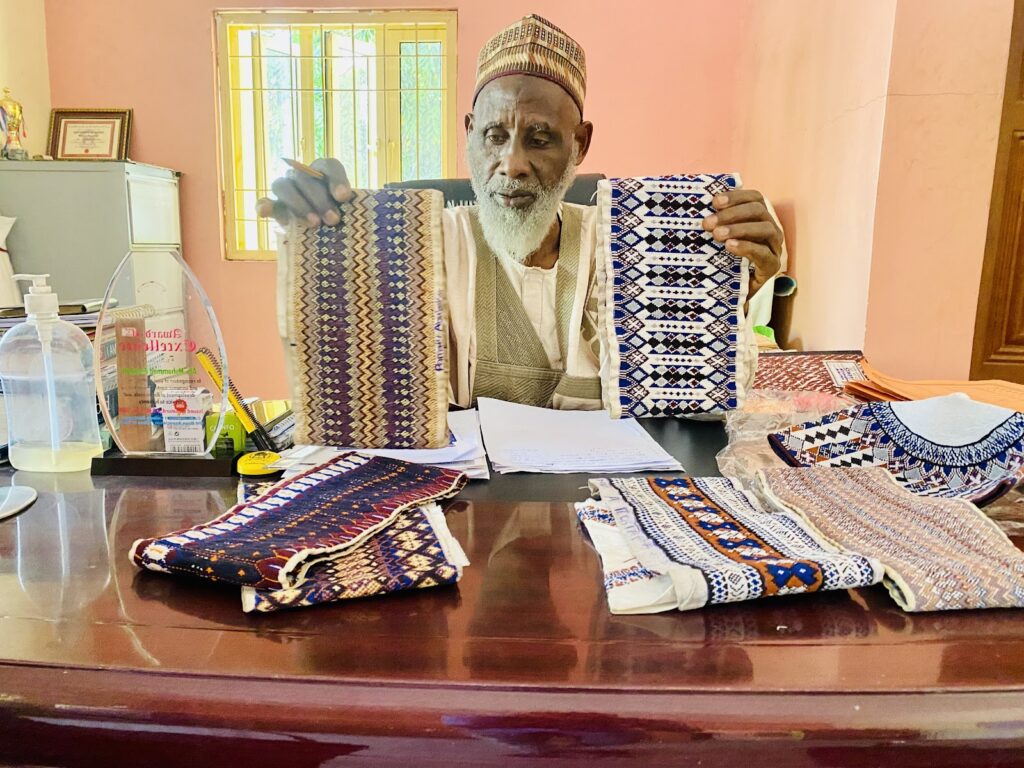
“Our agreement with guardians says free education for the duration of secondary schooling. To ensure compliance, we warned guardians not to interfere with their daughter’s education, and they agreed.”
Stepping into the premises of the school, HumAngle was welcomed by a serene environment with meticulous designs of visual masterpieces. It’s a bountiful garden, and the students are like happy butterflies used to design their classes. At GCC, education seems to be an immersive and innovative experience.
“Our students are taught crafts that will sustain them after secondary school. We teach cap making, pillow making, phone repair, computer repair, tailoring, soap making, necklaces, and bangles making and fish farming. We do that so that they can be self-dependent for life after secondary school. The proceeds from the items made by the students are saved for the students for their use,” the principal added.
Reacting to this, Omovigho Rani Ebireri, an educationist from the University of Maiduguri, told HumAngle that the skills taught at GCC are sustainable for the growth of the students.
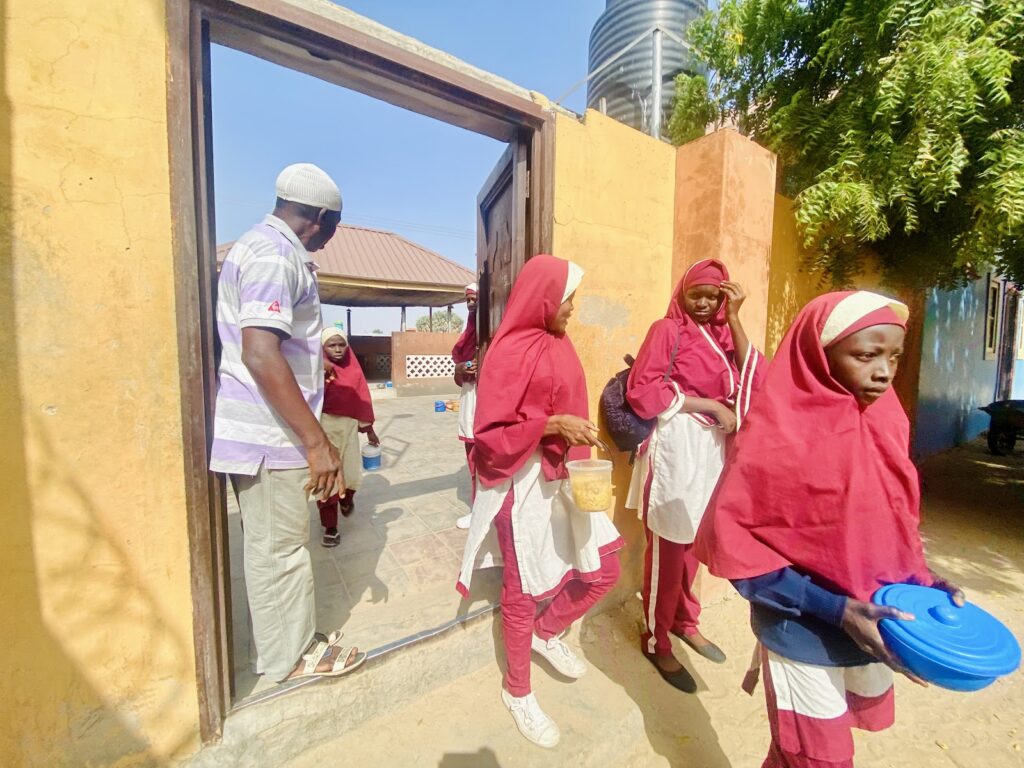
“Girls having an education and a regular source of income will give them a footing and stability in life. Especially skills that are up to date. This will have an intergenerational effect; the girls will have value for education, and the society will benefit from this advancement,” he said.
Like Hafsat, other girls like Fatima Ali, Hadiza Sanusi, and Amina Haruna are happy to be at GCC as they give credit to their teachers, saying they allow them to freely express their concerns and never get tired of correcting them when they make mistakes.
Funding
Aside from the partnership with the state government, the school says it also gets funding support from philanthropists who are interested in seeing girls fulfil their highest potential and become self-reliant.
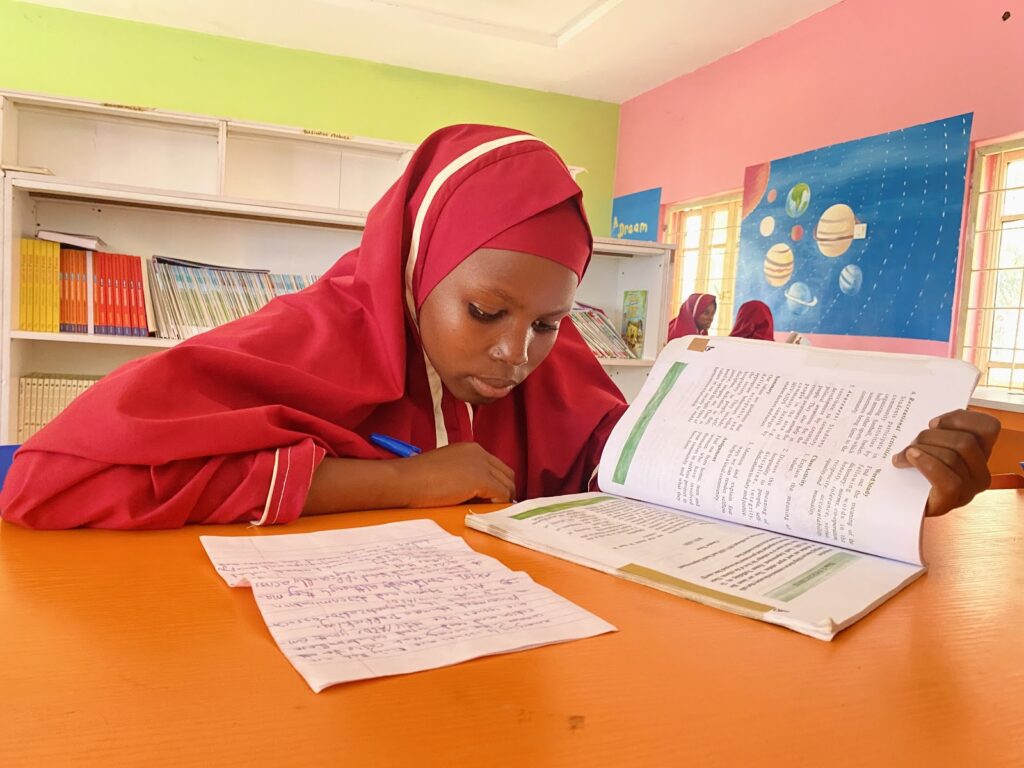

Explaining why the school engages the girls in various crafts, the communication officer of GCC, Lawan Maigana, said the empowerment will enable the girls to attain self-sponsorship for further education at tertiary institutions and also maintain independence after marriage.
“Our objectives are to provide a holistic solution to the horrifying data surrounding girl child education, especially in Borno state where the Boko haram conflict had ravaged the state,” he said.
Challenges
The principal of GGC remarked, “Despite the increasing number of guardians seeking enrollment for their daughters, we are unable to accommodate them due to financial constraints. Admitting additional students at this juncture would jeopardise our established standards, but we wish to expand our capacity shortly due to the need for girl child education in the northeast”.
Support Our Journalism
There are millions of ordinary people affected by conflict in Africa whose stories are missing in the mainstream media. HumAngle is determined to tell those challenging and under-reported stories, hoping that the people impacted by these conflicts will find the safety and security they deserve.
To ensure that we continue to provide public service coverage, we have a small favour to ask you. We want you to be part of our journalistic endeavour by contributing a token to us.
Your donation will further promote a robust, free, and independent media.

